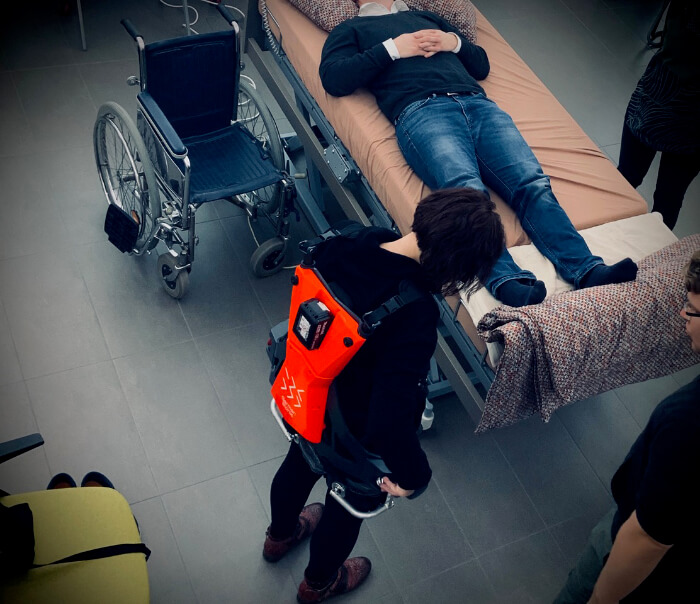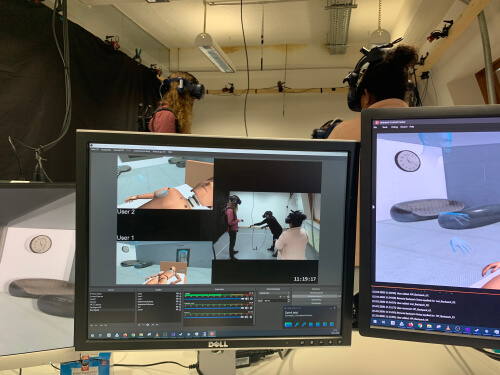The basis for successfully developing care-related digital technologies is the precise integration into everyday care routines, acceptance by caregivers and those in need of care and compatibility with existing technical infrastructures.
Digitally processing and linking care-specific and health-related data, as is made possible by the telematics infrastructure (TI) and the electronic patient record (ePA), also promises to systematically relieve the burden and improve planning of care.
Significant improvements can also be expected through regularly collecting specific health data – such as vital signs and health parameters – or adequately documenting wound management. The manual collection of these data could be automated in the future and implemented continuously by digitally networked devices such as so-called “wearables” which are closely connected to the body. Such devices can also contribute to an improved home environment and care setting by transmitting safety-relevant data to the involved services, such as potential fall events or data relevant to the prevention of pressure sores. In the area of service documentation, which still consumes a large proportion of time and human resources, VR-based and automated technologies or mobile devices, for instance, are expected to improve the day-to-day provision of care. In addition, computer-based physical support systems, such as exoskeletons, offer new ways of permanently relieving the physical burden on caregivers.
59 %of the professional carers surveyed state that their field of work is not sufficiently prepared for the new age of digitalised care
5 %have access to smart sensors in care practice
68 %have access to lifting aids
Funding? There is.
According to the German government’s 7th Altenbericht (BMG 2021), the long-term care insurance system has funded digitisation projects in Germany to the tune of more than 310 million euros by 2021 (e.g., with the funding program introduced by the “Pflegepersonalstärkungsgesetz” (PpSG) in accordance with § 8 Abs. 8 of the German Social Code, Book XI). These projects primarily serve to relieve the burden on professional caregivers. “Here, outpatient and full inpatient care facilities can receive a subsidy for digital applications that support, in particular, internal quality management, the collection of quality indicators, cooperation between physicians and full inpatient care facilities, and the associated education, training, and continuing education in geriatric care.” (BMG 2021) For each care facility, up to 40 percent of the costs of both digital or technical equipment and related training can be covered once by long-term care insurance. However, only up to a maximum amount of 12,000 euros. The German National Association of Statutory Health Insurance (GKV) provides guidance on how to apply for funding.

